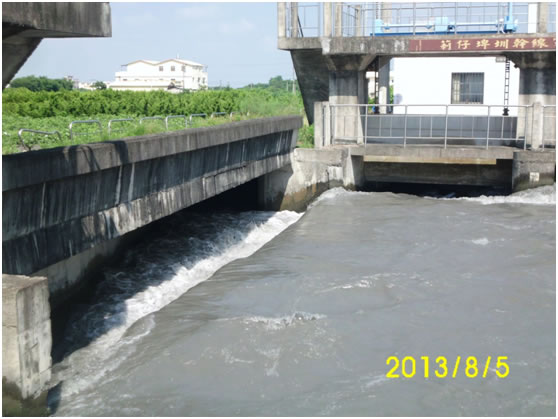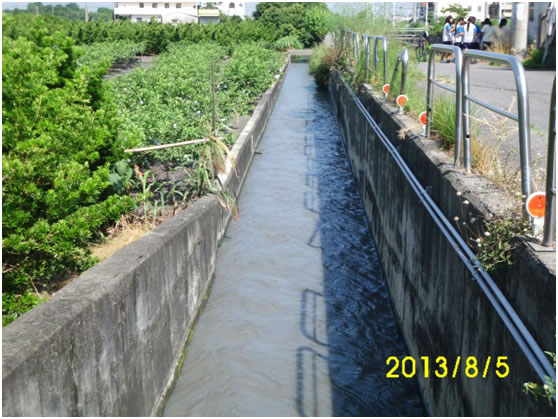|
| |
|
|
| |
| Introduction |
| |
| In order to understand the influence of constructing CTSP-4 on the water resources allocation in Changhua, in July 2013, we took a tour bus to visit the site. We thought there should be factories everywhere on the site, but unexpectedly, it was still empty, full of weeds in the park! |
TOP  |
 About CTSP About CTSP |
Central Taiwan Science Park was established in September 2002 upon the approval of Executive Yuan. It is in its fourth phase of development, with the entire development period from 2003 to 2019. Considering the factory land use demand for the next generation of PV industry development, the land in Taichung park cannot meet the demand for use. Thus, in order to continuously meet the entry of high-tech manufacturers, expand the existing scale of science and technology industry cluster, and accelerate the industrial transformation and upgrading in the central region, the Ministry of Science and Technology formed the Science Park Strategic Development Committee in February 2008 to promote the selection of land use for CTSP-4. Through public selection, Changhua Erlin Base was selected as the expansion site of CTSP-4 in August 2008.
Cizaipijun aqueduct is the main source for the irrigation water in Changhua County. We visited the local resident Ms. Li-yue Tsai (se photo below) on the thoughts of residents participating in the Alliance Against Water-Jacking. Ms. Li-yue was just an ordinary woman, who paid so much for Dacheng, really making us admired. She would not retreat because of frustration, but she was braver and braver in the fighting, protect her hometown regardless of everything, she applied her talent of painting and placed the paintings beside the road for the purpose of protecting her hometown!
TOP

 Cizaipijun aqueduct Cizaipijun aqueduct |
Cizaipijun aqueduct is the first official waterway in Taiwan, and also the second largest irrigation system in Changhua County. It takes the water of Jhuoshui River from Xizhou Township to irrigate the whole southwest area of Changhua. Cizaipijun aqueduct has a trunk line of 39km, branches 211km and separated lines 148km. These waterways of various sizes extend to Xizhou Township, Pitou Township, Erlin Township, Fangyuan Township, Beidou Township, Chutang Township, Dacheng Township, etc. Like the blood vessels in human body, this artery of water transmits the water and nutrient to various places, and 18850 ha of farmlands along the line need the sandy water. The water source Xizhou Township has a close relation with Cizaipijun aqueduct, and some people even say that Xizhou Township exists because of Cizaipijun aqueduct.


|
Our ancestors had reclaimed land here in the Qing Dynasty. However, Jhuoshui River had serious flood disaster at that time, while Xizhou Township was a gravel land between rivers and was quite infertile. The local explorer should not only struggle with water, but also should worry about their livelihood. In 1901, Cizaipijun aqueduct was under construction, and in 1911, Jhuoshui River embankment was built. The flood disaster relieved, and people could introduce the sandy water of Jhuoshui River for irrigation because of Cizaipijun aqueduct. Because the sandy water was full of sediment, the farmers used muddy water to supplement the nutrients of farmland, improve the soil condition and increase fertility, and make their farmland full of sandy water and deposit soil in the slack farming season, and this made the gravel land where only drought-enduring crops could be planted become fertile farmland.
The agricultural crops growing in such land and nourished by Jhuoshui River are fragrant and sweet. The local farmers say that the water in Jhuoshui River is rich in trace elements, and the rice is both fragrant and chewy compared with that produced in the farmland irrigated with fresh water, and Xizhou Township is famous in Taiwan for “muddy water rice”. Therefore, because of the passing of the waterway, people gradually got together in the agricultural township Xizhou Township. Jhuoshui River does not only breed generations of Xizhou people, but also produces high-quality agricultural products and provides rich food for Taiwan.
TOP

|
 Water conflicts Water conflicts |
For the water use demand of CTSP-4, Changhua Irrigation Association allocates the agricultural water of Cizaipijun aqueduct 66,500 MT per day as the water of in the middle stage CTSP-4 at the cost of 3.3 NTD per m3, which affects 18,550 MT on farmland irrigation. Since the operation of Jiji Weir, the irrigation water of Cizaipijun aqueduct has been supplied for 4 days while stopped for 6 days, and the agricultural water has long been insufficient. Even the research of Council of Agriculture pointed out that supporting the water use of CTSP-4 will cause the lack of 10-30 million MT water for the agriculture in Changhua, but related departments still agree to dispatch the agricultural water to CTSP-4. There would be no farmland without water and no grain without farmland. Cizaipijun aqueduct which has irrigated the fertile land in Changhua for hundreds of years is confronted with the crisis of water striving. Luckily, after resistance of Alliance Against Water-Jacking formed by the local farmers, the government has actively listened to the farmers’ invoice, and CTSP-4 has been transformed into a precise machinery park, with water consumption decreasing substantially, which can be said to be the manifestation of the government’s consideration of will of the people.
 |
Leading the people in Xizhou Township to the north for the 12th time within one year, Ms. Yin-ning Wu, a writer, thought the water striving project was still making progress, but the central government was indifferent and she shed tears for several times on the protest site.
Alliance Against Water-Jacking argues that the water in Jhuoshui River is muddy and rich in sediment, which is suitable for cultivation but not suitable for industrial use, and it is unreasonable for the Department of Irrigation and Engineering to sell such water to CTSP-4.
The farmers seriously criticize that the responsibility of Department of Irrigation and Engineering should be to care the farmers, but it sells the agricultural water to meet the demand of industrial use, so it might as well renamed as “Department of Industry and Engineering”.
From Against SNCP, Kuo Kuang Petroleum Corp. to Alliance Against Water-Jacking, the 82-year-old Jin-chou Huang has protested in the street of Taipei for countless times. Now with about 1.5 ha of farmland, he still lives on rice and vegetable planting. He says that he would never let his farmland deserted.
From Xiangsiliao to against water-jacking, the board “immediately stop CTSP-4” has appeared in front of Environmental Protection Administration, Executive Yuan, Legislative Yuan, Presidential Office Building for countless times.
Source: Irrigation.Canal Group
TOP 
|
|
 Afterthoughts Afterthoughts
|
Through the teacher’s introduction and on-site visit to CTSP-4, we think CTSP-4 indeed can bring employment opportunity for the local people and drive the development of local economy, or perhaps can attract the young people to develop in Erlin Township, but on the other hand, building CTSP-4 might bring negative influence, like land expropriation, industrial pollution, waste water discharge, power distribution and water use conflict etc., which makes it worthy for the government to listen to the people’s voice and think carefully.!
Influence on agricultural water: CTSP-4 consumes 150,000 MT water everyday, in the medium period, it was planned to dispatch the agricultural water, so a water transmission project of 24km long with 14ha. sediment tank was planned. The water is transmitted to Erlin Park through the special pipes in Cizaipijun aqueduct. The water transmission is entrusted by Ministry of Science and Technology to Changhua Irrigation Association. At present, the project of 2.1 billion NTD has been contracted completely.
Finally, with three roles, “Hsichow farmers”, “Erlin residents” and “government officials”, the research team stated their respective positions and ideas in this topic. |
| |
Government officials:Building CTSP-4 can improve the central development and increase the employment opportunity, why is it not good?
|
| Xizhou farmers: Because CTSP-4 is a mosquito factory which is almost not used, it even strives for water with us, really hateful! We also need water for irrigation! What should we do without water? We have to dig the underground water wells, causing so serious ground subsidence, and this is also not the result we want to see! |
Erlin residents: Our land is also land, our health is also health! Why the beneficiary of building CTSP-4 is the government officials, but those who are forced to relocate and influenced by the pollution are the residents here? Why not consider our feelings?
Through this on-site interview, we listened to the experience shared by the local residents and the story behind Alliance Against Water-Jacking. They are so brave, the 70-80 years old farmers protest only for the irrigation water and to protect their homeland. For decades, under the condition of farming, they might have never gone out of Changhua County, but for water, they have gone to the north for dozens of times and speak out the farmers’ voice, fully reflecting the spirit that “even shrimps can resist whales”.
TOP
|
|
|

